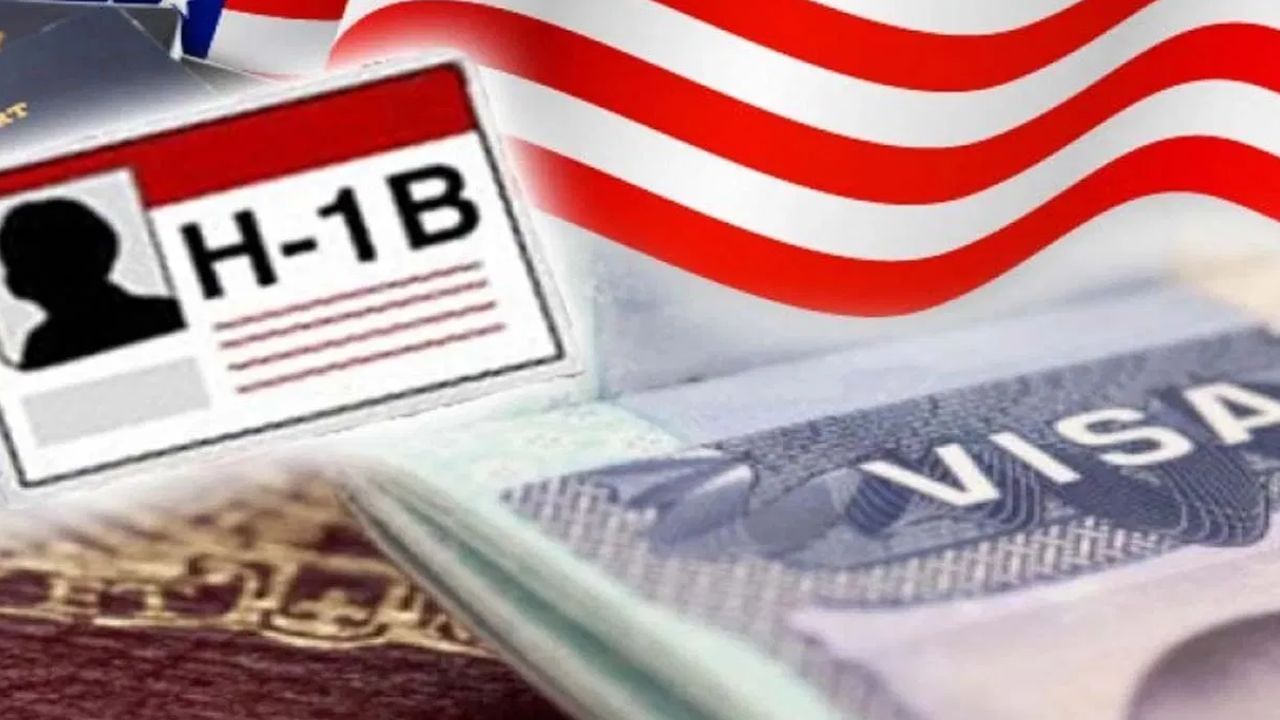On September 19, President Donald Trump announced that now a fee of $ 1 lakh (about Rs 83 lakh) will have to be paid on every new H-1B visa application. The country most affected by this decision is India, because 71% of all H-1B visas issued last year were given to Indians. IT companies will be most affected by this fee. Be it Indian or American.
Both Indian and American tech companies suffered losses due to this announcement. According to a media report, India’s two big IT companies TCS and Infosys were most affected. After the announcement of the fee, TCS shares fell 8.9% and Infosys shares fell 6.1% in just one week. America’s two biggest tech companies also use H-1B visas extensively, which include Amazon and Microsoft. After the announcement of the fee, Amazon’s shares fell 4.9% and Microsoft’s shares fell 1.4%. The question is why was the impact on American companies less?
salary difference
Wage data for H-1B workers helps explain this difference. The average annual salary of TCS H-1B employees is $78,000. The average salary of Infosys employees is $71,000. At the same time, the average salary in Amazon is $143,000 and in Microsoft it is $141,000. This means that compared to the employees of Indian companies, this fee is almost twice as heavy in proportion to their salary. That is, this fee has a greater impact on the profits of Indian companies.
Difficult times for Indian companies
The times ahead look challenging for Indian IT companies dependent on H-1B visas. Now American policy seems to be moving towards giving visas to companies paying high salaries. This new fee of $100,000 is being considered as the first step in that direction.
Silicon Valley’s strategic silence
The thing to note is that American tech companies did not oppose this fee. Because H-1B visas are given through lottery system. If this fee discourages Indian companies from applying, then the chances of American companies getting a visa increases.
Will this increase jobs in India?
One positive aspect of this could be that Indian IT companies will now employ more people within the country. Domestic workers can be recruited in place of H-1B visas that will no longer be available. If companies adapt their business models to this change, their shares can rise again, and the current decline can prove to be a good opportunity for investors.
Also read- India will benefit from increase in H-1B visa fees, jobs will increase in this sector.
What steps will companies take
Here, the HR head of Tata Consultancy Services (TCS) has said in a statement that the company’s business model can easily adapt itself to the changes in H-1B visa, because this IT giant is now increasing the number of its local employees in America. He told that the company has significantly reduced its dependence on H-1B visa for its operations in America. Currently only about 500 employees are working in America on H-1B visa.
